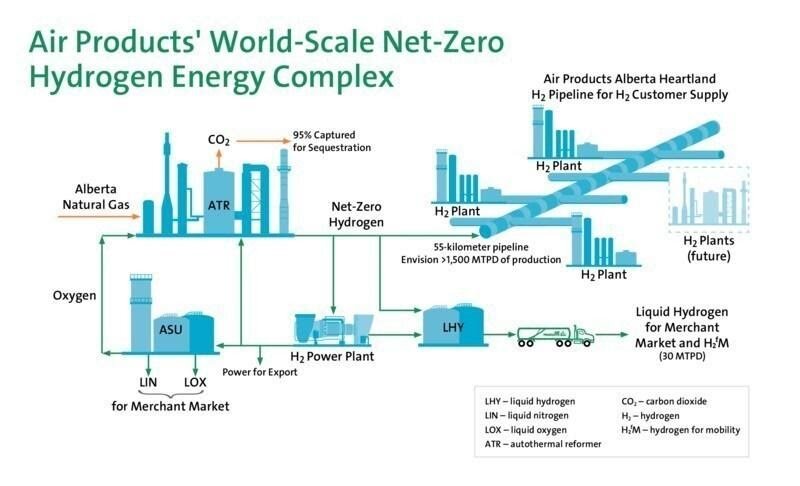Air Products Announces Multi-Billion Dollar Net-Zero Hydrogen Energy Complex in Edmonton, Alberta, Canada
Source: · CISION PR NEWSWIRE · | June 9, 2021
Source: Air Products' World-Scale Net-Zero Hydrogen Energy Complex
Air Products (NYSE: APD), the world leader in hydrogen production, and its subsidiary Air Products Canada Ltd., in conjunction with the Government of Canada and the Province of Alberta, today announced a multi-billion dollar plan to build a landmark new net-zero hydrogen energy complex that will make Edmonton, Alberta the centre of western Canada's hydrogen economy and set the stage for Air Products to operate the most competitive and lowest-carbon-intensity hydrogen network in the world.
Canada's clean energy diversification strategy and regulatory framework make clear that hydrogen is a key enabler for carbon neutrality by 2050. Aligned with that vision, Air Products began work in 2018 on the core of this world-scale energy complex in Edmonton, which will begin with a transformative $1.3 billion (CAD) net-zero hydrogen production and liquefaction facility expected onstream in 2024. This project has been approved by Air Products' Board of Directors, subject to final completion of the agreements contemplated in signed Memorandums of Understanding between Air Products and Canadian authorities, and with appropriate permit approvals. This development is consistent with Air Products' growth strategy of executing global megaprojects that enable a transition to a cleaner, more sustainable energy future.
The project relies on an innovative combination of well-established technologies to jump-start an ambitious transition to carbon neutrality. It will take advantage of Canada's abundant and low-cost natural resources, extensive infrastructure, highly skilled workforce, and innovative spirit to be a model for other jurisdictions around the globe.

